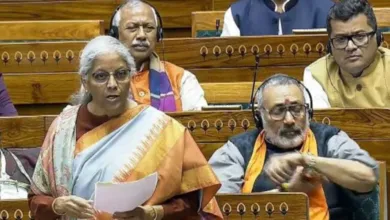
SBI vs SEBI case: The Telangana High Court has rejected State Bank of India’s (SBI) plea to recover money from defaulters before the Securities and Exchange Board of India (SEBI). The court said that SBI cannot claim priority over SEBI, as the prohibitory orders were issued to protect lakhs of investors.
The case relates to two private companies, Midfield Industries and SVCL Pvt Limited, that had taken loans from SBI in 2004 and 2006. The companies defaulted on the loans and the loans were declared as Non-Performing Assets (NPAs). SBI initiated recovery proceedings under the Securitisation and Reconstruction of Financial Assets and Enforcement of Security Interest (SARFAESI) Act. However, the sub-registrar refused to register the property in the name of the successful bidder, citing the prohibitory orders passed by SEBI.
SBI argued that it should be given priority in the recovery, as it had given the loans long before the 2020 prohibitory order by SEBI. It also pointed out that the SARFAESI Act and the Recovery of Debts and Bankruptcy Act (RDB Act) had a non-obstante clause, which means that they would prevail over the SEBI Act.
However, SEBI argued that the present case did not fall under the non-obstante clause. It said that the entities had violated the SEBI Act much earlier, and that notices had been issued to them. SEBI also said that the prohibitory order was passed to protect lakhs of investors. The court accepted SEBI’s argument and dismissed SBI’s plea.

